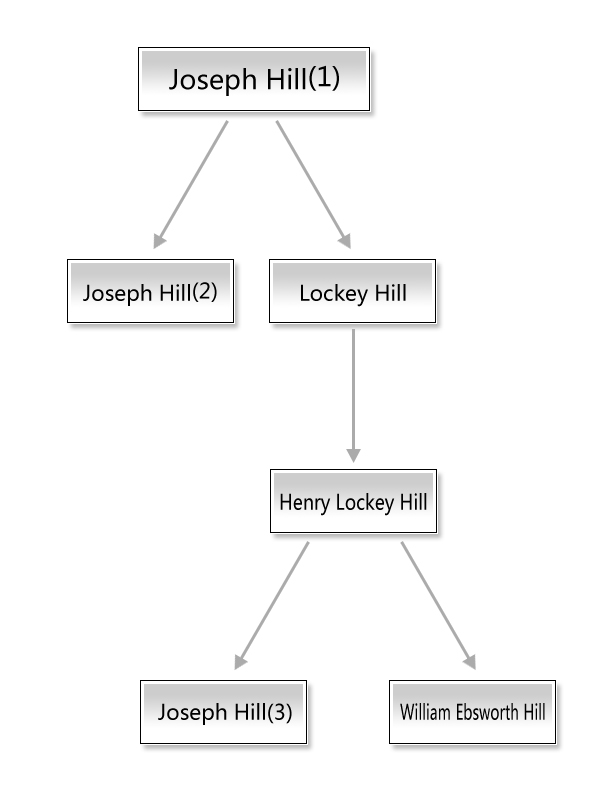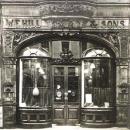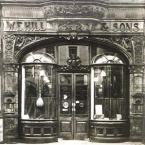
W. E. Hill & Sons (1887-1992) was a London-based firm, that specialized in violins and other string instruments, and bows. It was also known as William Hill & Sons or William E. Hill & Sons.
Founded by William Ebsworth Hill at 38 New Bond Street, London in 1887, the name W. E. Hill & Sons built on a long family history of violin making going back to William Ebsworth's great grandfather, Joseph Hill. The firm soon gained a widespread reputation for excellence in repairs, making of instruments, bows, cases and fittings as well as instrument identification and authentication. A "Hill's" Certificate of Authenticity was considered definitive worldwide throughout the firm's history.[1]
Many fine craftsmen worked for the firm. They were particularly famous for their bow makers. For much of the 20th century, the Hill workshop employed England’s best bow makers, who created bows renowned for character and consistency. Hill violins, cellos and cases are also highly regarded. Their other famous products included varnish cleaner, violin e-strings, and books about violin making families.
Many famous stringed instruments passed through Hill & Sons, including the Alard Stradivarius, the Messiah Stradivarius, and the Lipinski Stradivarius.
W. E. Hill and Sons ceased operation in 1992.
Each instrument numbered.
As bow makers they are universally acknowledged as pre-eminent, and this preeminence is due to several important conditions which exist with them. One of the principals of these is the fact they never had any other intention but to produce the best, regardless of cost. To them the finest examples of Tourte, Dodd and others, were always available as models. Another very outstanding feature is the possession by them of a large and aged stock of the choicest pernambuco wood procurable. Pernambuco specially suitable for bows is a very difficult wood to obtain, thorough seasoning is an absolute requisite, and their bows are made only of material seasoned by natural processes for ten years. These conditions, combined with exceptional skill in workmanship, result in the production of bows equal to those of any French maker, past and present. Very fine heads and every little detail microscopically finished, great attention paid to the screws which are made from case-hardened steel. Elasticity, strength and perfect balance, altogether fine tone producers. Absolutely flawless except that some soloists do not like the whalebone lapping. Especially appreciated are the Dodd modelled examples. Stamped “W. E. H. & Sons” and “W. E. Hill & Sons”. Gold mounted sticks with a fleur-delys command high prices.





 W.E,Hill & Sons
W.E,Hill & Sons


